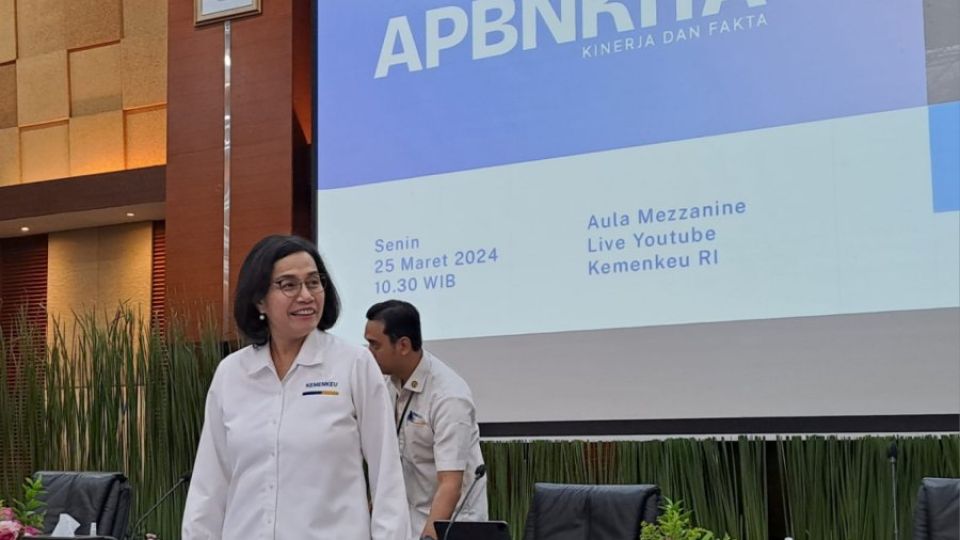March 26, 2024
JAKARTA – Tax revenue for the year to March 15 fell 3.7 percent year-on-year (yoy), the Finance Ministry has said, largely a result of companies seeking tax refunds for worse-than-expected business performances last year.
The government booked Rp 342.9 trillion (US$21.69 billion) in tax revenue from January to March 15. The ministry attributed the increase in tax restitution to a decline in global commodity prices that began last year.
“Our tax revenue experienced a lot of pressure because commodity prices began going down last year,” Finance Minister Sri Mulyani Indrawati said at a press briefing on Monday.
Companies operating in Indonesia pay corporate income tax each month based on an estimate determined by a formula outlined in the country’s tax law.
By the end of each calendar year, some companies may have paid more through the monthly estimates than they are actually obligated to, meaning they are eligible to seek tax restitution. Other companies, meanwhile, may have underpaid and will be required to make up the difference.
The government paid out Rp 13.1 trillion in tax restitution in the first two and a half months of 2024. If the restitutions are excluded, tax revenue grew by 5.7 percent, ministry data shows.
Sri Mulyani said corporate income tax went through a “steep correction” as a result of the restitution, with the adjusted tax revenue figure down 10.6 percent yoy to Rp 55.91 trillion as of March 15. In contrast, the country saw annual tax revenue growth of 43.3 percent yoy in the same period last year.
Corporate income tax comprised 16.31 percent of the total tax revenue, making it the third largest income source, after value-added tax (VAT) and employee income tax.
“We must be cautious of the state revenue composition and the pressure of the corrections of commodity prices,” said Sri Mulyani.
VAT, which makes up nearly 19 percent of total tax revenue, fell 25.8 percent yoy. Employee income tax revenue, meanwhile, was up on the year.
Tax collection by sector illustrated the effect of declining commodity prices on state revenue.
Tax collection from manufacturing fell 12.3 percent yoy, in distinction to the 34.7 percent yoy growth clocked in the same period last year.
The mining sector provided 26.8 percent less tax revenue than in the same period the year before, mainly because of price corrections in coal, which was also the country’s main export commodity for the period.
“Apart from those sectors, for example construction, financial services, transportation, communication, they are all relatively healthy,” said Sri Mulyani.
Low commodity prices also ate into revenue from export duties, with lower prices and export volumes of crude palm oil accounting for a large part of the decline. Overall income from excise and duties was down 3.2 percent yoy in the year to March 15.
Nontax revenue was also affected as coal production and prices moderated with the overall figure down 12.3 percent yoy as of March 15.
Combining tax, excise and duties as well as nontax revenue, state revenue for the year to March 15 was down 5.4 percent yoy to Rp 493.2 trillion.
The government spent Rp 470.3 trillion from the beginning of the year to March 15, some 14.1 percent of its total spending target for the year, making for a Rp 22.8 trillion budget surplus for the period, equivalent to 0.1 percent of GDP.


